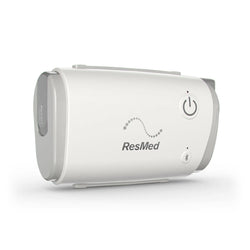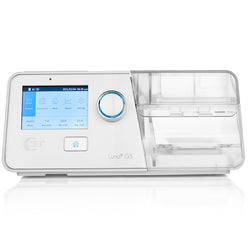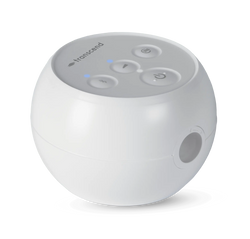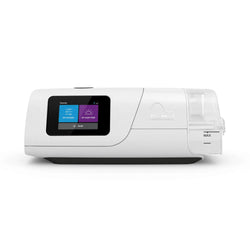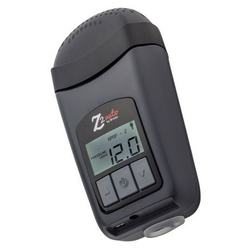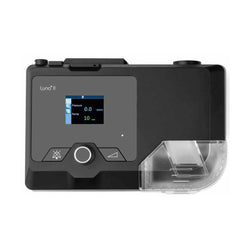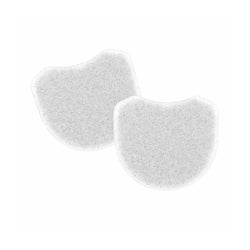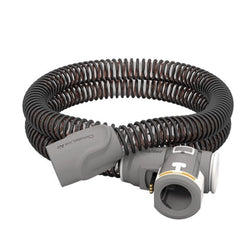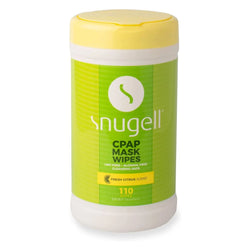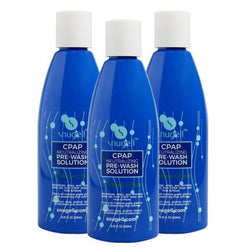So, you’re wondering, “How much does a CPAP machine cost?” Let’s get straight to it: A CPAP machine typically costs between $499 and $1,796, depending on the model, features, and brand.
But that’s just for the machine itself. Think of it like buying a car; the final price tag for getting on the road involves more than just the engine. For successful sleep apnea therapy, you’ll also need essential CPAP equipment like a mask, tubing, and filters. The cost can vary based on the type of machine (CPAP, APAP, or BiPAP), special features such as a built-in humidifier or a travel-friendly size, and trusted brands like ResMed, Transcend, or 3B Medical.
This guide will break down what you’re paying for and show you how to budget wisely for this life-changing investment.
Key Takeaways at a Glance:
Price Range: CPAP machines typically range from $499 to $1,796, depending on features and brand.
Not a One-Time Purchase: You’ll also need to budget for masks, filters, tubing, and cleaning supplies.
Ways to Save: Watch for bundles, Sleeplay App discounts, financing, and HSA/FSA eligible options.
Insurance Info: Want to know how coverage works? Check this guide.
Now, let’s dive into this blog!
Price Breakdown by Machine Type and Features
The primary factors influencing the price of a CPAP machine are its type and features. Just like with phones or cars, you’ll pay more for advanced technology.
All Positive Airway Pressure (PAP) devices require a prescription to purchase; however, the options and costs can vary significantly thereafter. A standard, reliable machine will be the most affordable, while compact travel models and advanced BiPAP machines with dual pressure settings will sit at the higher end of the price range.
Here’s a look at some popular models to give you a real-world idea of how features impact the final CPAP price.
Machine Name | Machine Type | Key Features | Price |
ResMed AirSense 11 AutoSet | APAP | Auto-adjusting pressure, humidifier, Bluetooth | $1,004 |
ResMed AirMini AutoSet | Travel APAP | Compact travel unit, app-connected, no built-in humidifier | $919 |
Luna G3 BiPAP | BiPAP | Inhale/exhale pressure support, humidifier | $1,499 |
Somnetics Transcend Micro Auto | Travel APAP | Ultra-small, quiet, discounted 21% off | $779 |
ResMed AirCurve 11 VAuto | BiPAP/APAP Hybrid | Full humidification, advanced algorithm | $1,796 |
Z2 Auto CPAP | Travel APAP | Lightweight, noise-reduction, compact | $725 |
Luna II AutoCPAP | APAP | Entry-level auto machine, heated humidifier | $499 |
As you can see, most CPAP machines are priced between $499 and $1,796.
Machines with premium features—like BiPAP technology, auto-adjusting pressure, travel-size convenience, or Bluetooth connectivity—are typically on the higher end of that range.
Keep an eye out for ways to save! Sleeplay often offers product bundles, seasonal sales, and special In-App discounts that can lower your total out-of-pocket cost.
Note: Prices are subject to change. Always confirm the final price at checkout.
Popular CPAP Machines
Main Factors That Impact CPAP Machine Pricing
When you see the wide price range for CPAP machines, it’s easy to wonder why.
The truth is, the cost of a CPAP machine isn’t random; it’s directly tied to the technology inside it and the specific needs of the user. Think of it less as a simple appliance and more as a personalized piece of medical equipment. These price variations are normal and ensure you can find a device that matches your medical needs, lifestyle, and comfort preferences.
Here are the main things that determine the final price tag.
1. Type of Device
Not all PAP devices work the same way, which is the biggest factor in their cost.
Standard CPAP (Fixed-Pressure): This is the most basic type of machine. It delivers a single, continuous pressure prescribed by your doctor. Because the technology is straightforward, these tend to be the most affordable options.
Auto-Adjusting CPAP (APAP): These are “smarter” machines that automatically adjust the air pressure throughout the night based on your breathing. Many users find this more comfortable, which makes APAP machines slightly more expensive than standard CPAP models.
BiPAP (Bilevel Positive Airway Pressure): These are the most advanced and, therefore, the most expensive machines. They provide two different pressure settings, a higher pressure when you inhale and a lower pressure when you exhale. BiPAP is typically prescribed for users with more complex sleep apnea or other respiratory conditions.
2. Brand and Build Quality
Like with any technology, brand reputation matters. Trusted names like ResMed, React Health (Luna), and Somnetics (Transcend) often have a higher price point, but that extra cost typically gets you:
Better long-term reliability and a longer lifespan.
Stronger warranties and customer support.
Higher quality materials and more rigorous testing.
A wider range of compatible masks, accessories, and replacement parts.
3. Technology & Smart Features
Extra features designed for comfort and convenience will also increase the machine’s cost. Here are the most common ones:
Auto-Adjusting Pressure: As mentioned above, this smart feature provides personalized therapy, which can lead to greater comfort and make it easier to stick with your treatment.
Bluetooth Connectivity: Modern machines often connect to a smartphone app. This allows you to track your therapy data, see your progress, and share insights with your doctor.
Heated Humidifiers: A must-have for many users, heated humidification adds moisture to the pressurized air, preventing the dry mouth and nasal passages that can sometimes occur with CPAP therapy.
Travel Size: If you’re frequently on the go, a travel CPAP machine offers incredible portability. You’re paying a premium for the technology to be miniaturized into an ultra-compact, lightweight device.
The Other Costs: CPAP Supplies and Accessories
To budget realistically for CPAP therapy, it’s essential to consider factors beyond the machine itself.
Your therapy involves several essential accessories that require regular replacement to ensure everything runs safely and effectively. Think of these as ongoing maintenance costs. Skipping replacements isn’t just detrimental to your equipment; it can also affect your health by reducing the effectiveness of therapy or even leading to skin irritation and infections.
While the exact additional cost will depend on your specific products and how often you replace them, here’s a breakdown of what to expect for these crucial CPAP replacement parts.
Accessory | Estimated Cost | Replacement Frequency | Shop Link |
CPAP Masks | $50–$200 | Every 6–12 months | Sleeplay Masks |
Tubing | $10–$50 | Every 3 months | Sleeplay Tubing |
Filters | ~$5 each | Every 2–4 weeks | Sleeplay Filters |
Humidifier Chambers | $20–$50 | Every 6 months | Sleeplay Humidifiers |
Headgear | $20–$60 | Every 6–12 months | Sleeplay Headgear |
Mask Cushions & Nasal Pillows | $20–$60 | Every 1–3 months | Sleeplay Cushions |
Cleaning Wipes & Soap | $10–$20 | As needed (weekly or monthly) | CPAP Cleaning |
CPAP Supplies and Accessories<
Replacing your CPAP supplies is a normal and necessary part of your therapy that you should expect annually. Over time, parts like mask cushions and headgear naturally break down from use and contact with skin oils. This can cause air leaks, reduce your air pressure, and create a breeding ground for bacteria.
While some insurance plans may offer coverage for these items, many users pay out-of-pocket for the convenience and freedom to choose their preferred CPAP supplies. To make this easier, Sleeplay offers subscription options for many items, allowing you to set up auto-deliveries so you never have a gap in your therapy.
Not sure which parts fit your CPAP machine or mask? Use Sleeplay’s Part Finder tool to quickly locate compatible accessories, replacement parts, and supplies—all in one place.
Is It Cheaper to Buy Online?
Yes, in many cases, buying a CPAP machine online is more affordable and flexible.
While prices can vary, many people save hundreds of dollars, gain access to special deals, and avoid the complex rules and delays that often accompany insurance. Shopping online is especially helpful if you have a high-deductible insurance plan, no coverage for durable medical equipment, or simply want fast and easy access to your equipment without the wait.
Here are a few of the biggest advantages of buying online:
Transparent Pricing and Sales
Online platforms like Sleeplay often offer discounted machines or bundled packages.
Prices are clearly listed with no surprise charges or hidden fees.
Wider Product Selection
Users can compare standard vs. travel CPAPs and also explore ResMed, React Health (Luna), and other brands directly.
Easier to shop by budget, features, or medical need, versus limited options from insurance suppliers.
No Compliance Tracking
- When you buy your machine outright, you own it. This means you don’t have to worry about meeting strict insurance compliance rules (like proving you used it for 4 hours a night, 70% of the time). This freedom allows you to adjust to your CPAP therapy at a pace that feels comfortable for you.
Savings With Subscription & Payment Options
- To make managing ongoing costs easier, Sleeplay’s Subscribe & Save feature lets you automate your supply orders for items like filters and cushions. You get a discount on every order and can set a flexible delivery schedule so you never run out. Many sites also offer payment plans, allowing you to break up a larger purchase over time.
Easy Mobile Experience & Discounts with the Sleeplay App
- The Sleeplay App (available on iOS and Android) makes managing your therapy simple. You can shop for new gear, manage your subscriptions, and get support right from your phone. Plus, app users often get access to exclusive discounts and sales.
If you want to understand how this compares to insurance-covered options, visit our detailed guide: Does Insurance Cover CPAP Machines?
Tips to Save on Your CPAP Investment
Paying out-of-pocket for your CPAP machine and supplies doesn’t mean you have to pay the full sticker price. With a little planning, you can significantly lower the cost of your sleep apnea therapy. Here are five practical tips to help you save.
1. Keep an Eye on Seasonal Promotions & Holiday Sales
Major holidays are often the best time to find a great deal. Be sure to check the Sleeplay homepage or subscribe to the newsletter for announcements on big sales events like Black Friday, New Year’s, summer sales, and other seasonal promotions. This is a perfect time to buy a new machine or stock up on supplies at a lower price.
2. Use “Subscribe & Save” for Your Supplies
For recurring purchases like filters, cushions, and tubing, Sleeplay’s Subscribe & Save program is a smart move. You can automate your orders to arrive exactly when you need them, and you’ll get a discount on every shipment. It’s an easy way to reduce your long-term costs and ensure you never run out of essential supplies.
3. Use Your HSA or FSA Funds
Did you know that CPAP machines, accessories, and even cleaning supplies are eligible medical expenses for Health Savings Accounts (HSA) and Flexible Spending Accounts (FSA)? Using these pre-tax funds is one of the easiest ways to save 20-30% on your entire purchase. This is especially impactful for higher-end machines like the ResMed AirCurve 11 VAuto.
4. Choose Proven, Budget-Friendly Models
The newest machine isn’t always necessary to get excellent results. Reliable, slightly older models often provide fantastic performance at a much lower cost. For example, the ResMed AirSense 10 AutoSet ($960) is a celebrated workhorse, while the Luna II AutoCPAP ($499) is one of the best entry-level values available. These are great starting points if you’re on a budget.
5. Download the Sleeplay App for Extra Discounts
The Sleeplay App is another great tool for saving money. It gives you access to mobile-exclusive offers and app-only deals that you won’t find on the website. It also makes it simple to track your orders and manage your subscriptions right from your phone.
FAQs About CPAP Machine Costs
How much does a CPAP machine cost?
A new CPAP machine typically costs between $499 and $1,796 out-of-pocket. The final price depends on the type of machine (standard CPAP, APAP, or BiPAP), its features (like a heated humidifier or travel size), and the brand.
What’s the average cost of a CPAP machine with and without insurance?
Without insurance, you can expect to pay the retail price, generally between $499 and $1,796. With insurance, your cost varies greatly depending on your deductible and co-pay. While it can be lower after meeting your deductible, sometimes the initial out-of-pocket cost of buying online is cheaper than going through a high-deductible insurance plan.
Are CPAP machines expensive?
While there is an upfront investment, it’s beneficial to consider a CPAP machine as a long-term investment in your health. The cost reflects its status as a sophisticated medical device. Thankfully, there are many budget-friendly models available, and the cost of untreated sleep apnea is far greater in terms of health issues and reduced quality of life.
Why are CPAP machines so costly?
CPAP machines are complex medical devices that require significant research, development, and precision engineering. The cost covers advanced technology, including sensitive pressure sensors and intelligent algorithms that adjust to your breathing, as well as high-quality materials safe for medical use. Additionally, features such as humidification and data tracking enhance the effectiveness and comfort of therapy.
Is it cheaper to buy a CPAP machine online?
Yes, it is often more cost-effective and convenient to purchase a CPAP machine online. Online retailers like Sleeplay offer competitive pricing, frequent sales, and product bundles. This route allows you to avoid insurance complexities and choose the exact machine you want without waiting for approvals.
How much is a BiPAP or APAP machine?
APAP (auto-adjusting) machines are a mid-range option, with popular models, such as the ResMed AirSense 11, costing around $1,004. BiPAP machines, which offer two distinct pressure settings, are more advanced and therefore more expensive, with models like the ResMed AirCurve 11 VAuto priced at around $1,796.
What is the cost of CPAP accessories like masks and tubing?
Ongoing accessories are a key part of your budget. Masks can range from $50 to $200, tubing typically costs between $10 and $50, and replacement filters are usually around $5 each. These parts need to be replaced regularly to maintain the hygiene and effectiveness of your therapy.
Do I need a prescription to buy a CPAP machine?
Yes, absolutely. A CPAP machine is an FDA-regulated medical device. You must have a valid prescription from a doctor to purchase one, as it ensures your machine is set to the correct pressure for your specific medical needs.
How often do I have to replace CPAP parts and what do they cost?
Replacement schedules vary, but a general guideline is: mask cushions every 1-3 months ($20-$60), tubing every 3 months ($10-$50), and the full mask every 6-12 months ($50-$200). Regular replacement is crucial for hygiene and preventing leaks.
What’s the cheapest CPAP machine available?
For those on a budget, an excellent and affordable entry point is the 3B Medical Luna II AutoCPAP, which offers auto-adjusting pressure and a heated humidifier for around $499. It provides reliable performance without the premium price tag of newer models.
Where can I get deals or discounts on CPAP machines?
The best ways to find deals are to watch for holiday and seasonal sales, subscribe to newsletters from retailers like Sleeplay, and download the Sleeplay App for exclusive mobile-only discounts. Buying a machine-and-mask bundle also typically offers built-in savings.
Can I use HSA or FSA to buy a CPAP?
Yes, you can. CPAP machines and all related supplies (masks, tubing, filters, cleaning wipes) are considered eligible medical expenses. Using your pre-tax Health Savings Account (HSA) or Flexible Spending Account (FSA) funds is a great way to save money on your entire purchase.
References
CPAP Treatment for Adults with Obstructive Sleep Apnea: Review of the Clinical and Cost-Effectiveness and Guidelines [Internet]. Ottawa (ON): Canadian Agency for Drugs and Technologies in Health; 2013 Nov 18. SUMMARY OF EVIDENCE. Available from: https://www.ncbi.nlm.nih.gov/books/NBK195810/
Patil SP, Ayappa IA, Caples SM, Kimoff RJ, Patel SR, Harrod CG. Treatment of Adult Obstructive Sleep Apnea With Positive Airway Pressure: An American Academy of Sleep Medicine Systematic Review, Meta-Analysis, and GRADE Assessment. J Clin Sleep Med. 2019 Feb 15;15(2):301-334. doi: 10.5664/jcsm.7638. PMID: 30736888; PMCID: PMC6374080.
“Positive airway pressure treatment.” MedlinePlus, Accessed 20 June 2025: https://medlineplus.gov/ency/article/001916.htm



